Verhalten in Organisationen und Unternehmenserfolg
Die Forschungsgruppe untersucht, wie sich nicht-monetäre Arbeitsplatzcharakteristika (z. B. Mitsprache am Arbeitsplatz oder die wahrgenommene Sinnhaftigkeit der Arbeitsaufgabe) und Managerentscheidungen (z. B. bezogen auf Entlassungen) auf die Motivation der Arbeitnehmer auswirken. Der methodische Schwerpunkt der Gruppe liegt auf der Durchführung von (Feld-)Experimenten. Diese ermöglichen nicht nur eine exakte Messung des Arbeitseinsatzes; vor allem können Leistungsänderungen durch konstant gehaltene Bedingungen allein auf die Intervention des Experimentators zurückgeführt werden.
Forschungscluster
Produktivität und InstitutionenIhr Kontakt

- Abteilung Gesetzgebung, Regulierung und Faktormärkte
Referierte Publikationen
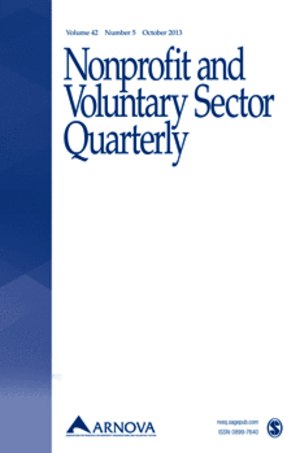
Mission, Motivation, and the Active Decision to Work for a Social Cause
in: Nonprofit and Voluntary Sector Quarterly, Nr. 2, 2022
Abstract
The mission of a job affects the type of worker attracted to an organization but may also provide incentives to an existing workforce. We conducted a natural field experiment with 246 short-term workers. We randomly allocated some of these workers to either a prosocial or a commercial job. Our data suggest that the mission of a job has a performance-enhancing motivational impact on particular individuals only, those with a prosocial attitude. However, the mission is very important if it has been actively selected. Those workers who have chosen to contribute to a social cause outperform the ones randomly assigned to the same job by about half a standard deviation. This effect seems to be a universal phenomenon that is not driven by information about the alternative job, the choice itself, or a particular subgroup.
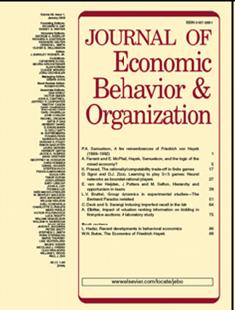
Gift-Exchange in Society and the Social Integration of Refugees: Evidence from a Field, a Laboratory, and a Survey Experiment
in: Journal of Economic Behavior and Organization, December 2021
Abstract
Refugee integration requires broad support from the host society, but only a minority is actively engaged. Given that most individuals reciprocate kind behavior, we examine the idea that the proportion of supporters will increase as a reciprocal response to refugees’ contributions to society through volunteering. Our nationwide survey experiment shows that citizens’ intentions to contribute time and money rise significantly when they learn about refugees’ pro-social activities. However, we find a substantial heterogeneity in the observed treatment effects. Individuals with a high reciprocal inclination show higher willingness to contribute time, while individuals with a lower reciprocal inclination are ready to contribute money after learning about the refugees' good deeds. Information regarding the possibility to establish a mutual support relationship with the refugees does not generally increase the willingness to contribute time or money beyond the information on refugees’ general contributions to the society. We complement this investigation with experiments in the lab and the field that confirm our findings for actual behavior.

Paid Vacation Use: The Role of Works Councils
in: Economic and Industrial Democracy, Nr. 3, 2021
Abstract
The article investigates the relationship between codetermination at the plant level and paid vacation in Germany. From a legal perspective, works councils have no impact on vacation entitlements, but they can affect their use. Employing data from the German Socio-Economic Panel (SOEP), the study finds that male employees who work in an establishment, in which a works council exists, take almost two additional days of paid vacation annually, relative to employees in an establishment without such institution. The effect for females is much smaller, if discernible at all. The data suggest that this gender gap might be due to the fact that women exploit vacation entitlements more comprehensively than men already in the absence of a works council.

“The Good News about Bad News”: Information about Past Organizational Failure and Its Impact on Worker Productivity
in: Leadership Quarterly, Nr. 3, 2021
Abstract
Failure in organizations is very common. Little is known about whether leaders should provide information about past organizational failure to followers and how this might affect their future performance. We conducted a field experiment in which we recruited temporary workers to carry out a phone campaign to attract new volunteers and randomly assigned them to either receive or not to receive information about a failed mail campaign pursuing the same goal. We find that informed workers performed better, regardless of whether they had previously worked on the failed mail campaign or not. Evidence from a second field experiment with students asked to support voluntarily a campaign for reducing food waste corroborates the finding. We explore the role of leadership tactics behind our findings in a third online survey experiment. We conclude that information about past failure is unlikely to have a negative impact on work performance, and might even lead to performance improvement. Implications for future research on the relevance of leadership tactics when giving such information are discussed.
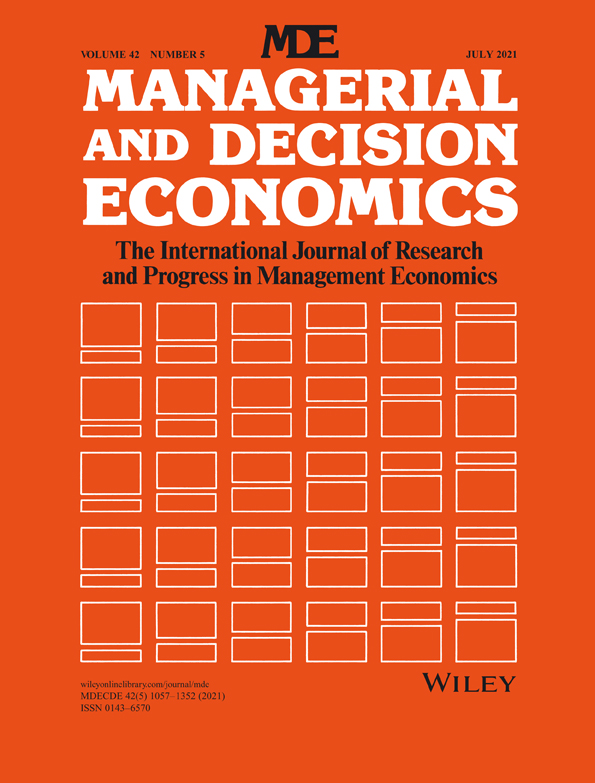
Unethical Employee Behavior Against Coworkers Following Unkind Management Treatment: An Experimental Analysis
in: Managerial and Decision Economics, Nr. 5, 2021
Abstract
We study unethical behavior toward unrelated coworkers as a response to managerial unkindness with two experiments. In our lab experiment, we do not find that subjects who experienced unkindness are more likely to cheat in a subsequent competition against another coworker who simultaneously experienced mistreatment. A subsequent survey experiment suggests that behavior in the lab can be explained by individuals' preferences for norm adherence, because unkind management behavior does not alter the perceived moral appropriateness of cheating. However, having no shared experience of managerial unkindness opens up some moral wiggle room for employees to misbehave at the costs of others.
Arbeitspapiere
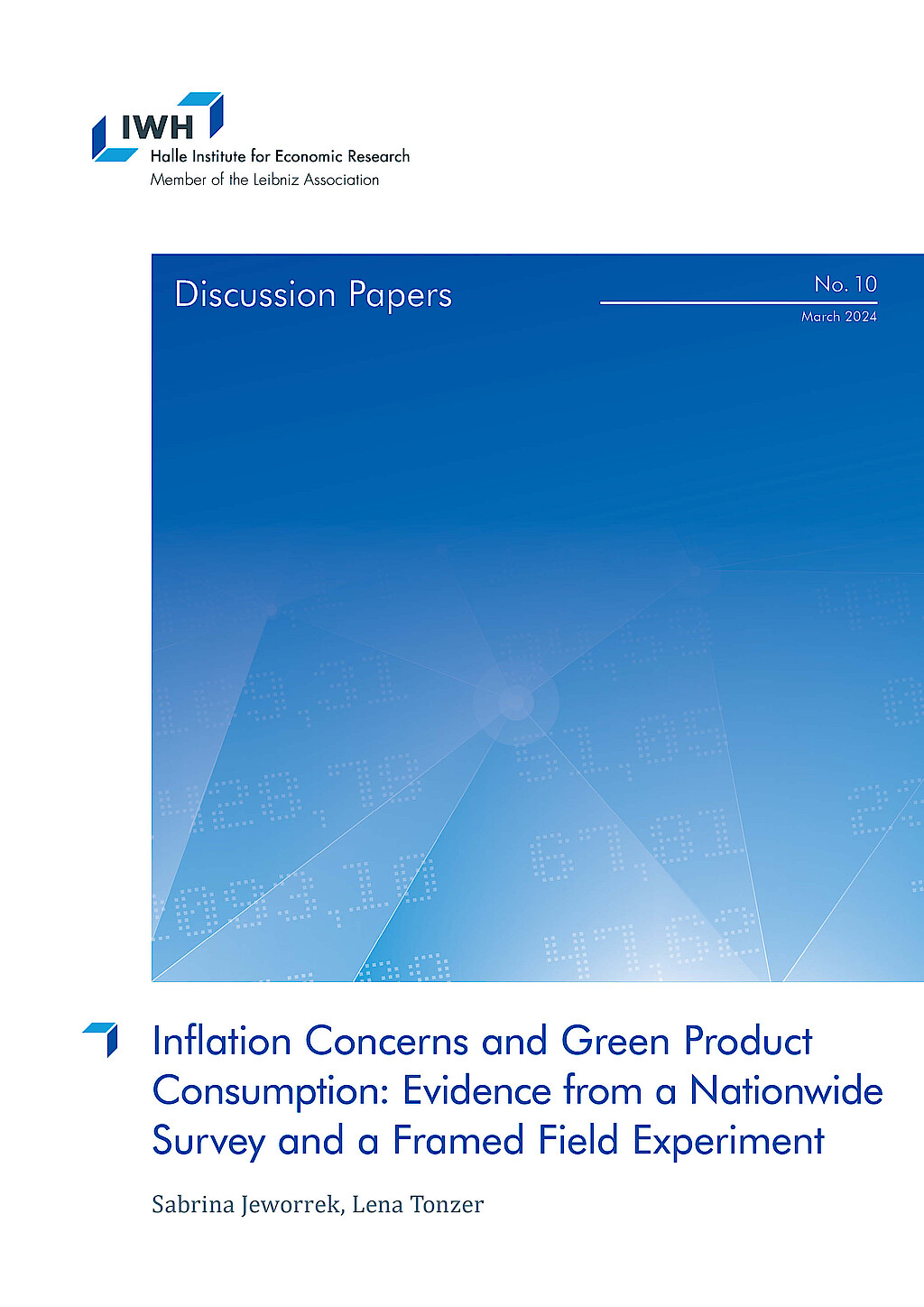
Inflation Concerns and Green Product Consumption: Evidence from a Nationwide Survey and a Framed Field Experiment
in: IWH Discussion Papers, Nr. 10, 2024
Abstract
<p>Promoting green product consumption is one important element in building a sustainable society. Yet green products are usually more costly. In times of high inflation, not only budget constraints but also the fear that prices will continue to rise might dampen green product consumption and, hence, limit the effectiveness of exerted efforts to promote sustainable behaviors. To test this suggestion, we conducted a Germany-wide survey with almost 1,200 respondents, followed by a framed field experiment (N=500) to confirm causality. In the survey, respondents’ stated “green” purchasing behavior is, as to be expected, positively correlated with concerns about climate change. It is also negatively correlated with concerns about future inflation and energy costs, but after controlling for observable characteristics such as income and educational level only the correlation with concerns about future prices remains significant. This result is driven by individuals with below-median environmental attitude. In the framed field experiment, we use the priming method to manipulate the saliency of inflation concerns. Whereas sizably relaxing the budget constraint (i.e., by 50 percent) has no impact on the share of organic products in participants’ baskets, the priming significantly decreases the share of organic products for individuals with below-median environmental attitude, similar to the survey data.</p>
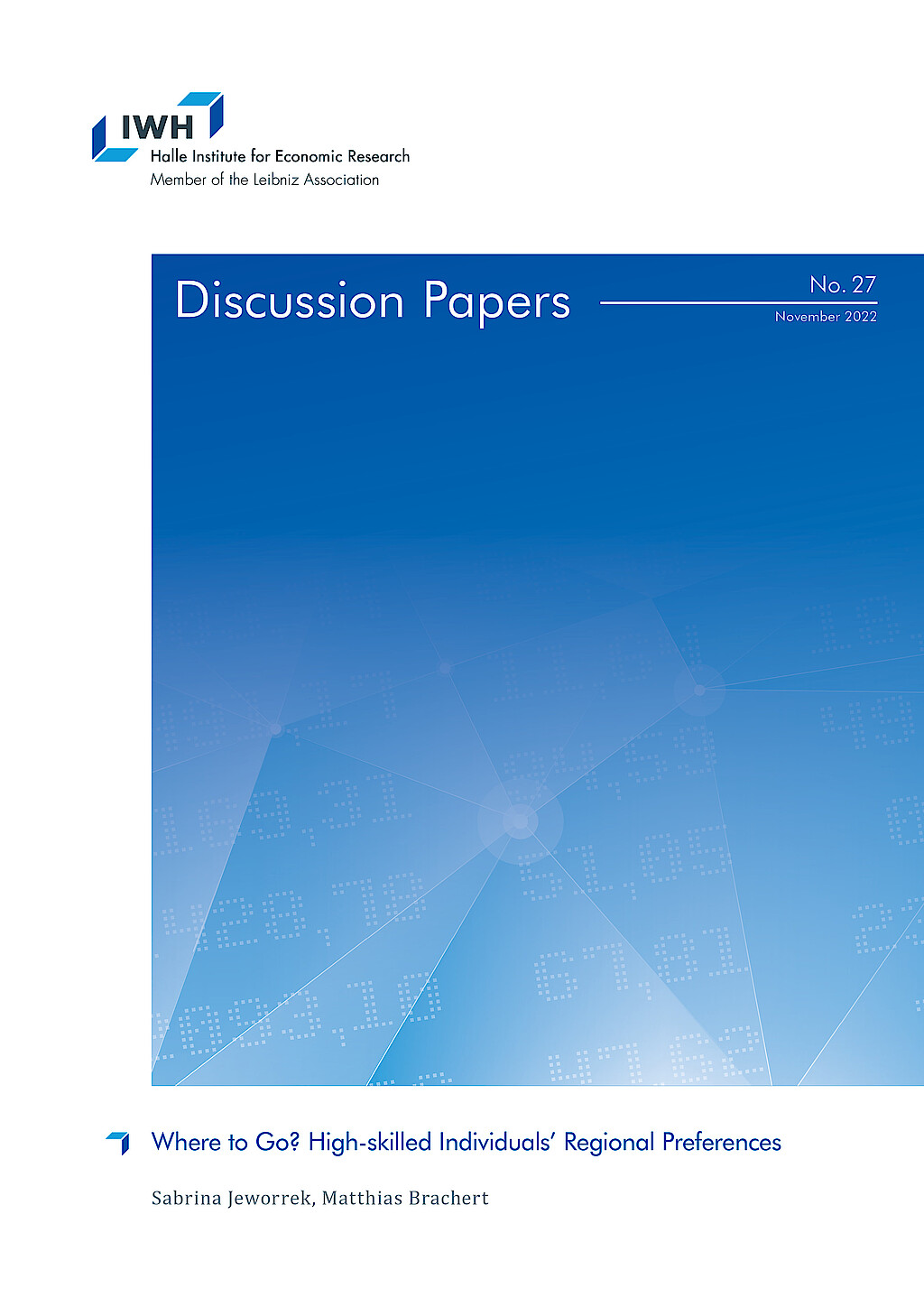
Where to Go? High-skilled Individuals’ Regional Preferences
in: IWH Discussion Papers, Nr. 27, 2022
Abstract
We conduct a discrete choice experiment to investigate how the location of a firm in a rural or urban region affects job attractiveness and contributes to the spatial sorting of university students and graduates. We characterize the attractiveness of a location based on several dimensions (social life, public infrastructure, connectivity) and combine this information with an urban or rural attribution. We also vary job design as well as contractual characteristics of the job. We find that job offers from companies in rural areas are generally considered less attractive. This is true regardless of the attractiveness of the region. The negative perception is particularly pronounced among persons with urban origin and singles. These persons rate job offers from rural regions significantly worse. In contrast, high-skilled individuals who originate from rural areas as well as individuals with partners and kids have no specific preference for jobs in urban or rural areas.
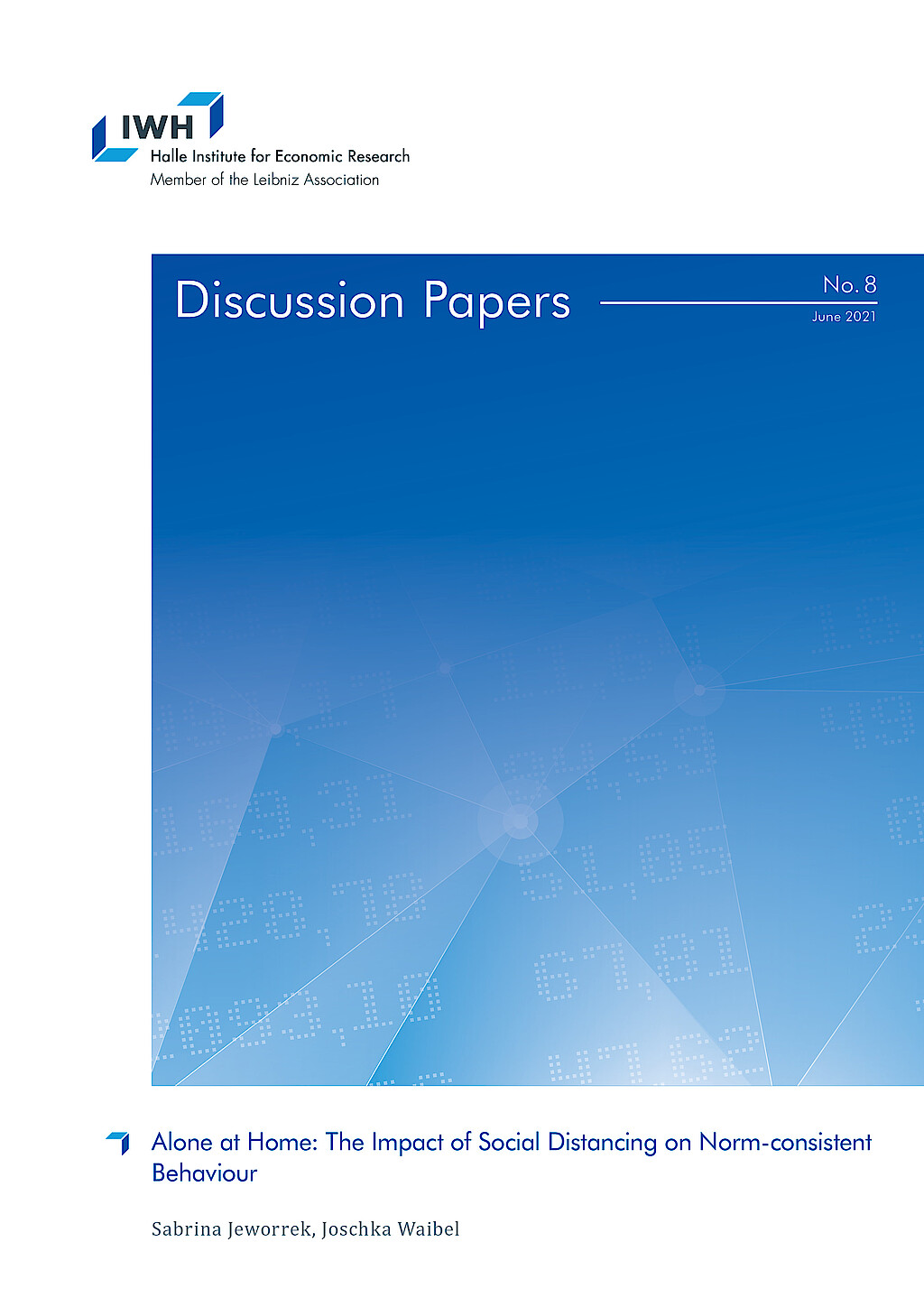
Alone at Home: The Impact of Social Distancing on Norm-consistent Behavior
in: IWH Discussion Papers, Nr. 8, 2021
Abstract
Around the globe, the COVID-19 pandemic has turned daily live upside down since social distancing is probably the most effective means of containing the virus until herd immunity is reached. Social norms have been shown to be an important determinant of social distancing behaviors. By conducting two experiments and using the priming method to manipulate social isolation recollections, we study whether social distancing has in turn affected norms of prosociality and norm compliance. The normative expectations of what behaviors others would approve or disapprove in our experimental setting did not change. Looking at actual behavior, however, we find that persistent social distancing indeed caused a decline in prosociality – even after the relaxation of social distancing rules and in times of optimism. At the same time, our results contain some good news since subjects seem still to care for norms and become more prosocial once again after we draw their attention to the empirical norm of how others have previously behaved in a similar situation.







